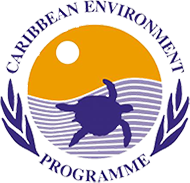CASTRIES, St. Lucia, March 21st, 2019 – The Environmental Health and Sustainable Development (EHSD) Department of the Caribbean Public Health Agency (CARPHA), based in Saint Lucia, operates at the nexus between health and the environment. With this mandate, water security (including quantity and quality) is central to CARPHA’s support of its 26 Member States. It therefore means that this year’s World Water Day theme, ‘Leaving No One Behind’, is aligned to our core functions through our interventions in potable water for consumption and water for sanitation, as we serve the Caribbean Region in protecting human health and the environment.
EHSD recognizes that according to Agenda 2030 – everyone must benefit from advances in sustainable development. Some of the most vulnerable include women, the elderly, children and the financially disadvantaged. When these groups exist in informal housing settlements, they are particularly vulnerable as there is often inadequate potable water available for domestic use, including sanitation. Add to this, the challenges of climate change that may limit access to potable water, and the concerns become grave.
EHSD supports a holistic approach to water management, that encompasses availability and safety aspects, and considers the realities of climate change as well as the social disparities that leave many vulnerable. EHSD engages in intervention planning and capacity building that captures everyone and accounts for their needs. Such initiatives include approaches to water augmentation that involves Rainwater Harvesting which can support the resource needs of the financially disadvantaged from urban and rural areas who may not have access to the municipal supply. This approach includes protection against vector-borne disease proliferation from poor water storage. EHSD also engages in source protection and pollution prevention strategy initiatives focused on identifying better agricultural practices in watersheds; alternatives to the use of persistent chemicals; and more effective waste management. Noteworthily, stakeholder engagement is essential in the decision-making processes, and includes beneficiaries as well as partners engaged for the delivery of services and resources.
CARPHA recognizes that even when water is available, there is still the need to ensure that it is safe for consumption and other domestic needs. To that end EHSD engages in Water Safety Planning in Member States. This is an approach to water safety that examines all aspects of supply from collection in the watershed to use by the consumer to identify and address any vulnerabilities in the system that could lead to contamination. This involves all stakeholders, including for example, the farmer operating close to the intake, who may be inadvertently polluting the source water; to the consumer who may be receiving good quality water, but may accidentally contaminate it during storage and access.
Additionally, important to the process of water quality control, is monitoring and surveillance. This allows for keeping account of the quality of water by systematically collecting data on the levels of contaminants that could affect health. Information to guide interventions to respond to the environmental risks forms the basic tool for planning and ensuring the needs of all are accounted for.
Water is the building block of life and each person should have access to a potable supply. CARPHA remains committed to bringing attention to water related issues in the Caribbean Region, advocating for solutions and partnering with International Development Partners (IDPs) to mobilize resources to advance water security, reduce risk in water supply systems and enhance resilience to a changing climate.
About CARPHA:
The Caribbean Public Health Agency (CARPHA) is the new single regional public health agency for the Caribbean. It was legally established in July 2011 by an Inter-Governmental Agreement signed by Caribbean Community Member States and began operation in January 2013. The Agency rationalises public health arrangements in the Region by combining the functions of five Caribbean Regional Health Institutes (RHIs) into a single agency. They are: The Caribbean Environmental Health Institute (CEHI); The Caribbean Epidemiology Centre (CAREC); The Caribbean Food and Nutrition Institute (CFNI); The Caribbean Health Research Council (CHRC); The Caribbean Regional Drug Testing Laboratory (CRDTL).
For more information contact:
Malika Thompson
Communications Officer
Phone: 758 452 2501
Email: thompsma@carpha.org
###






